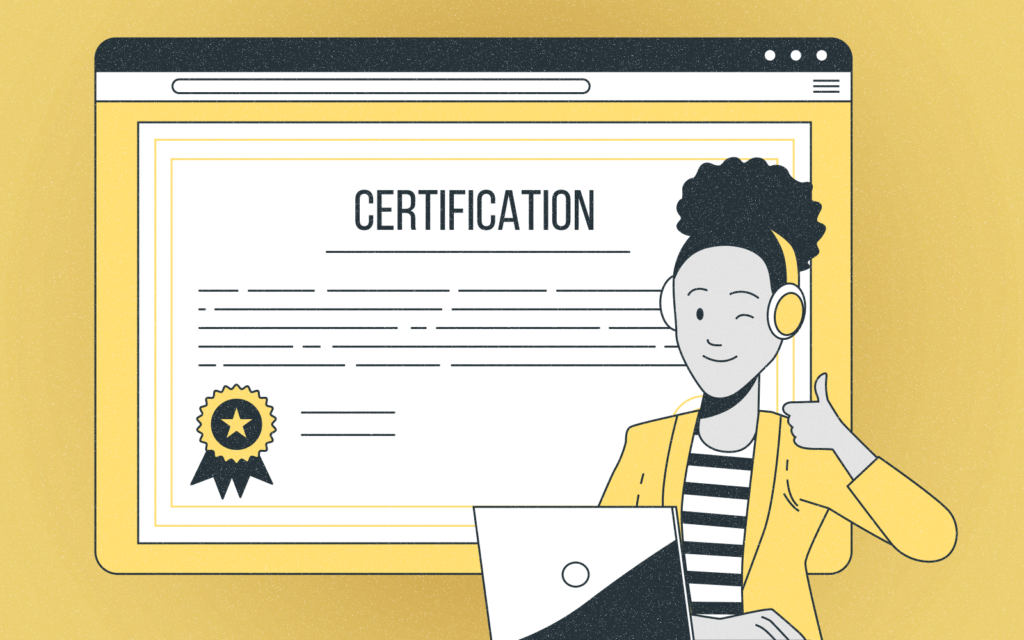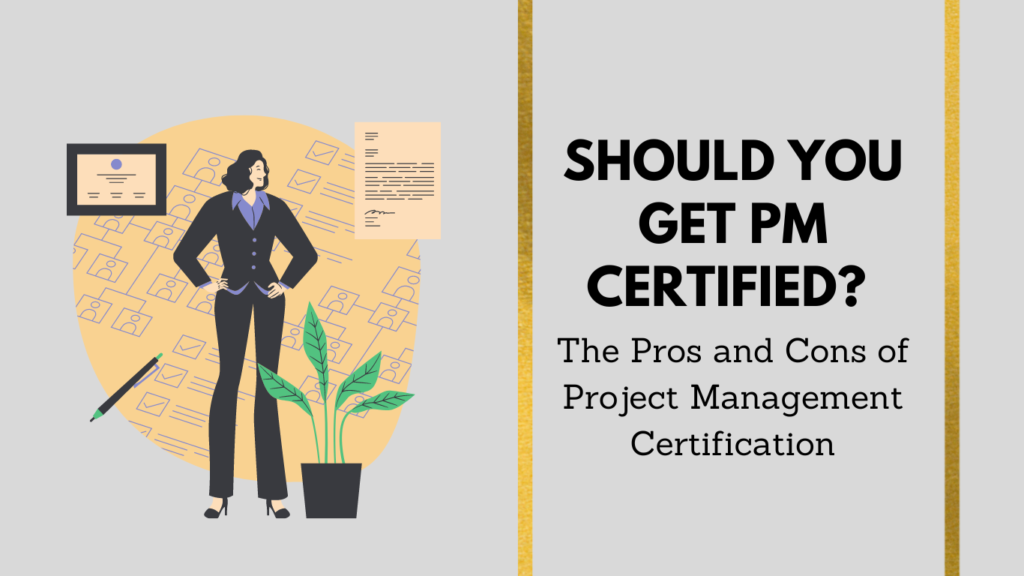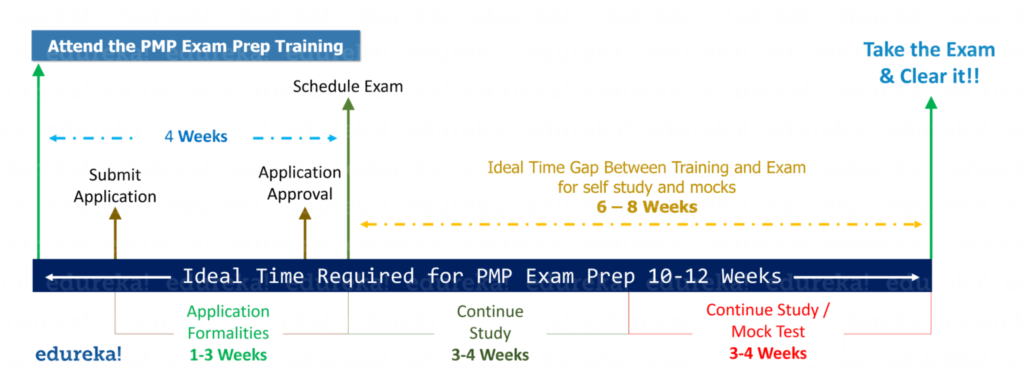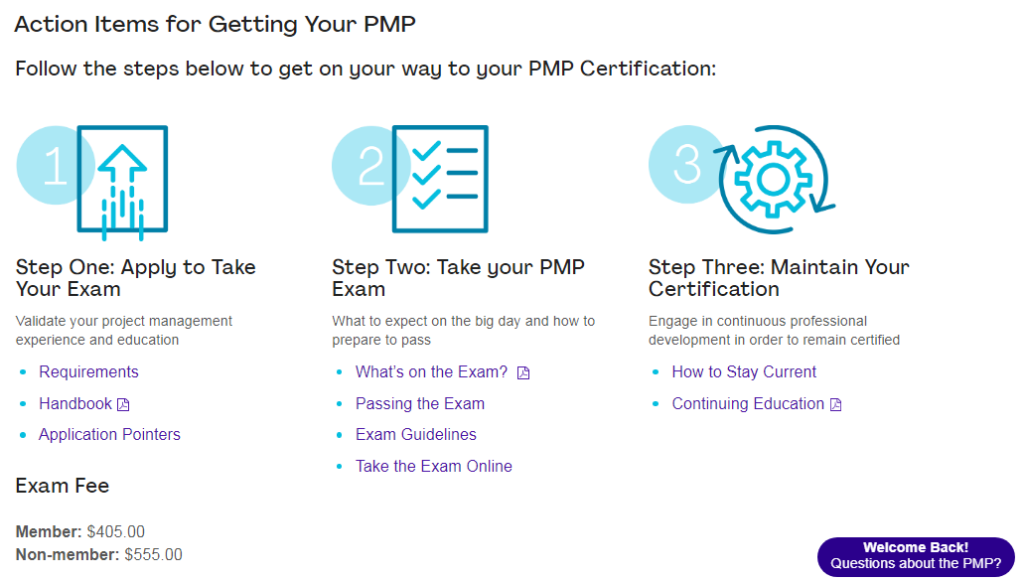A PM Certification. What’s the Process and is it Worth it?

Congratulations! You managed to get the project management job position (pun intended). Now, what’s next? Besides having experience handling teams and projects, what else do you need to be a doo project manager? Surely the thought of whether or not to get certified has crossed your mind. Certainly, there are pros and cons to both sides of the argument, and it can be tough to decide what is best for you.
As always, Monitask has you covered! In this blog post, we will discuss the benefits and drawbacks of PM certification, and in case you decide to pursue one, we will tell you how so that you can make an informed decision about what is right for you.
Keep reading!

Launched in 1984, the Project Management Institute (PMI) first credential was the PMP, or Project Management Professional. This credential was granted ISO accreditation in 2007, and currently, there are more than 1,000,000 PMP certification holders worldwide.
Nowadays, the PMP is one of, if not the most, globally recognized PM certifications. To this day, it continues to be one of the most popular certifications for project managers! Yet, what does this certification imply?
Let’s take a look!
What’s The PM Certification?
First, you should know that PM certification is not the same as PM training. Certification validates your project management experience and skills through a credential, whereas training provides you with the knowledge to get said credential.
PM certification is a process that organizations use to certify PMs. PMs who are PMP certified have met the requirements of the PMI, including experience and education requirements, and have agreed to abide by the PMI Code of Ethics and Professional Conduct
There are different types of certifications for project managers, such as Agile Certified Practitioner (ACP) or Certified Associate in Project Management (CAPM). The most popular one is still PMP, therefore we will focus on this particular one since it is globally recognized, and meeting the requirements might be easier than others.

Generally speaking, certification gives you an edge over non-certified PMs when applying for jobs. It is a way to show that you are committed to the profession and that you have the skills and experience to back it up.
But, let’s not get far ahead of the topic!
The Pros of PM Certification
Certifications exist for a reason, there is not some bureaucratic paperwork. If you are trying to get a credential such as the PMP certification it implies that you want to improve your project management skills. And, of course, this is always a good thing!
Some advantages of being certified are:
- Certification can give you an edge in the job market.
- It can help you develop new skills and knowledge.
- Certified PMs earn more money than non-certified ones.
- Certification can help you advance in your career.
Now, let’s go over each one of these points!
An Edge In The Job Market
Lack of experience is often cited as one of the main reasons why people don’t get hired. One way to overcome this obstacle is by getting a certification that will help you stand out from the rest of the applicants.
PMP certification is globally recognized, and having it will give you an edge over other candidates who don’t have it
A certification is a way to show that you are committed to the profession and that you have the skills and experience to back it up. It also shows that you are willing to invest in your professional development, which is always a good thing in the eyes of potential employers.
Develop New Skills & Knowledge
A PM certification is not only a way to show that you have the skills and experience required for the job, but it is also an opportunity to develop new ones. The PMP certification process requires you to study and prepare for the exam, which will help you learn new things about project management.
Even if you don’t pass the exam the first time, the process of preparing for it will still help you develop new skills and knowledge
In addition, most certification programs include continuing education requirements that keep you up-to-date on the latest developments in your field. This is beneficial not only for you but also for your employer, as it ensures that you are always up-to-date on the latest trends and best practices.
Project management is a complex profession that requires a variety of skills, ranging from technical skills to soft skills. Getting certified can help you develop these skills and become a better-rounded project manager.
Earn More Money
According to the Project Management Salary Survey, certified PMs earn 20% more than their non-certified counterparts. In the image below, you can see this is 4% more than the PM certified used to gain back in 2011, meaning the salary trend tends to go higher over time!

This difference in earnings is even more significant for those with higher levels of education and experience. For example, certified PMs with a master’s degree and 15 years of experience earn, on average, $139,000 per year. In comparison, non-certified PMs with the same level of education and experience earn an average of $122,000 per year.
So, if you’re looking to earn more money, getting certified is definitely a good way to do it!
Advance In Your Career
In addition to earning more money, certification can also help you advance in your career. Many organizations use certification as a way to identify high-potential employees and give them opportunities for career growth.
For example, some organizations have certification programs that allow employees to move up the ladder based on their level of certification. Therefore, if you’re certified at a certain level, you may be eligible for promotions or pay raises.
Certification can also help you transition into new roles or industries. For example, if you’re interested in moving from a technical role to a managerial role, certification can show that you have the necessary skills and knowledge to be successful in the new position.

Taken together, these points show that there are many benefits to getting certified as a project manager. However, certification is not right for everyone. In the next section, we’ll go over some of the drawbacks of PMP certification to help you decide if it’s right for you.
The Cons of PM Certification
There are a few things you should consider first. In this section, we’ll go over some of the drawbacks of PMP certification to help you decide if it’s right for you.
Cost
One of the biggest drawbacks of getting certified is the cost. The PMP certification exam costs for non-members are $555 and $405 for members. In addition, you will need to pay for study materials and possibly also a review course.
On average, the cost of getting certified is $1300. This includes the cost of the exam, study materials, and other associated fees
For some people, this cost may be worth it if it leads to a higher salary or a promotion. However, for others, the cost may not be worth it if there is no guarantee of getting the certification. On the other hand, the cost of not getting certified can also be high. For example, you may miss out on opportunities for advancement or higher salaries if you don’t have the certification.
Take into account that depending on how much experience you already have, you may also need to take additional training courses to meet the eligibility requirements.
Time Commitment
The Directorate of Programs at the Project Management Institute (PMI) advises that people should expect to spend around 30 hours studying for the PMP exam. The certification process also requires project managers to have experience working on projects.
To become certified, project managers must have a minimum of 35 contact hours of project management education as well thorough preparation is essential for anyone taking the PMP exam. The test covers a broad range of topics, and candidates are expected to have a deep understanding of all aspects of project management.
Getting certified takes a significant amount of time and effort. If you’re not willing to commit, it may not be worth it for you
pm-prep.com offers a variety of resources to help people to study for the exam, including practice tests, study guides, and educational videos.
Timeline
Another thing to consider is the timeline. It can take several months to prepare for the exam, and you will need to complete the application process before you can take the exam.
If you’re already working full-time, it may be difficult to find the time to study for the exam. In addition, if you don’t pass the exam on your first try, you will need to wait at least two months before you can retake it. This can be frustrating and cost you both time and money.

As well, there are some fees involved to keep your credential valid! The PMP certification is valid for three years. After three years, project managers must renew their certification by earning 60 professional development units (PDUs).
To sum up, there are both pros and cons to getting certified as a project manager. The benefits include the potential for a higher salary, improved job prospects, and greater credibility. However, the drawbacks include the cost of certification and the time commitment required to study for the exam.
In the end, whether or not you decide to get certified is up to you!
How to Get Your PM Certification?
To gеt сеrtіfіеd, уоu muѕt fіrѕt mееt thе еlіgіbіlіtу rеquіrеmеnts.
- The first раrt is to have a four-year degree (bachelor’s or the global equivalent) OR, if you don’t have a degree, you will need at least three years of project management experience with 7500 hours spent leading and directing projects and 35 hours of project management education.
- The second part is to pass an exam. The PMP® Exam is four hours long and consists of 200 multiple-choice questions. The test is administered in person at testing centers around the world. The PMP® Exam is offered in English, Brazilian Portuguese, Chinese (Traditional), French, German, Japanese, Russian and Spanish. Candidates should contact the provider for specific scheduling information related to these languages.
- Once you’ve passed the PMP exam, you’ll need to complete 60 professional development units (PDUs) every three years to maintain your certification. Remember that the PM credential is valid for three years.

There are many reasons to get certified as a project manager. Certification can give you the ability to command higher salaries, demonstrate your commitment to the profession, and show that you have the skills and knowledge necessary to be successful. However, certification is not without its drawbacks. The process can be expensive and time-consuming, and there is no guarantee you will get it the first time.
The process of becoming certified as a project manager is no small feat. Think about it in your sleep! If you have further questions, don’t hesitate to visit the FAQ question of the Project Management Institute (PMI) here.
Bottomline
So, what’s the verdict? Is PM certification worth it? Our answer would be yes, it does! We think it is not a matter of if this certification is worth its money, but more about when is the right time for you to pursue it!
We hope this article has helped give you a better understanding of both sides of the issue so that you can make an informed decision about whether or not project management certification is right for you. There are pros and cons to everything, and project management certification is no exception.
Whatever you decide, we wish you the best of luck in your project management career! If you’re interested in learning more about how to get started in project management, check out our blog post on project management!
-The Monitask Team


